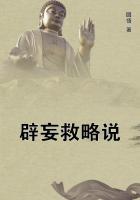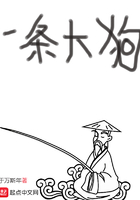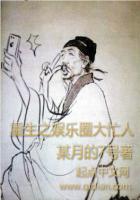Every one has an exclusive right over his own person. The labour of his body and the work of his hands therefore arelikewise his property. No one can have a greater right than he to that which he has acquired, especially if there remain asufficiency of similar objects for others. My labour, withdrawing objects from the state of community, makes them mine. Butthe right of acquisition must be limited by reason and equity. "If one exceeds the bounds of moderation and takes more thanhe has need of; he undoubtedly takes what belongs to others."The limit indicated by Locke is, for moveable things, the amount which we may take without allowing them to spoil. Forland the limit is the amount which we can cultivate ourselves, and the condition that there be left as much for others as theyrequire. "The measure of property," he says, "nature has well set by the extent of man's labour and the conveniences of life:
no man's labour could subdue, or appropriate all; nor could his enjoyment consume more than a small part; so that it wasimpossible for any man, this way, to intrench upon the right of another, or acquire to himself a property, to the prejudice ofhis neighbour, who would still have room for as good and as large a possession. This measure, we see, confines every man'spossession to a very moderate proportion, and such as he might appropriate to himself, without injury to anybody."So according to Locke the great principle is this: "Every one ought to have as much property as is necessary for hissupport."
The necessity of private property results "from the conditions of human life, which require labour and some material onwhich it may be exercised."
As Locke admits on the one hand an equality of right in all men (ch. L ?1), and on the other hand the necessity for everyman to have a certain portion of material, on which to live by his labour, it follows that he recognizes a natural right ofproperty in every one.
This theory is certainly more plausible than that of occupation. As M. Röder very justly remarks in his work, Die Grundzügedes Naturrechts , ?79, labour establishes between man and the objects which he has transformed a far closer connexion thanmere occupation, whether symbolical or even actual. Labour creates value; accordingly it seems just that he who has givenbirth to it, should also enjoy it. Moreover, as no one can legitimately retain more than that which he can cultivate, there is alimit which prevents usurpation. But no legislation ever allowed that labour or specification was alone a sufficient title toestablish property. He who is not already owner of the land or the material transformed, acquires nothing by his labour but aright to compensation or to remove the buildings and plantations set up on another man's land. Kant had already remarkedthat the cultivation of the soil was not sufficient to confer the ownership. "If labour alone," says M. Renouard ( Du Droitindustriel , p. 269), "conferred a legitimate ownership, logic would demand that so much of the material produced, asexceeds the remuneration of such labour, should be regarded as not duly acquired."Nay more: according to this theory the owner would manifestly have no right to the full value of land let to a tenant. Thetenant would become co-proprietor in proportion as the land was improved by his labour; and, at the end of a certainnumber of years, the proprietor would entirely lose all right of ownership. In any case, he could never raise the rent; for todo so, would be to appropriate the profits of another's labour, which would obviously be a robbery.
If labour were the only legitimate source of property, it would follow that a society, in which so many labourers live inpoverty and so many idlers in opulence, is contrary to all right and a violation of the true foundation of property.
The theory so imprudently adopted by most economists, and even by M. Thiers in his book, De la Propriété would thereforebe a condemnation of all our modern organization. Jurists have violently opposed the theory. The summary of theirobjections may be found in M. Warnkoenig's work, Doctrina juris philosophica , p. 121, and in the Naturrecht of Ahrens. Iflabour is the source of property, why should the Institutes and the Code civil have said nothing of it? (2) It may be said thatlabour ought to be the source of all property, but this principle would be condemnatory of the existing organization ofsociety.
3. In order to explain why men abandoned the primitive community, it has been asserted to have been in consequence of aconvention, and thus property would be the product of contract. This theory has even less to sustain it than the preceding.
In the first place, when we seek to derive a right from a fact, we are bound to establish the reality of that fact, otherwise theright has no foundation. Now, if we go back to the historic origin of property, we find no trace of such a contract.
Moreover, this convention, which we should have to seek in the night of past ages, cannot bind existing generations, andconsequently cannot serve as the basis of property at the present time. Convention cannot create a general right, for it itselfhas no value, except so far as it is conformable to justice. If property is legitimate and necessary, it must be maintained; but adecision taken by our remote ancestors will not entitle it to respect.
Kant holds that specification creates a provisional ownership, which only becomes final by the consent of all the members ofthe society. Kant does not maintain that this consent was a historic fact: he speaks of it as a juristic necessity, or a fact thejustice of which commands respect. But the moment we introduce the idea of justice, we are demanding of the generalprinciples of law the sanction of human institutions, and to what purpose is it then to invoke a convention which has neveroccurred? It is enough to shew that property is conformable to right.















